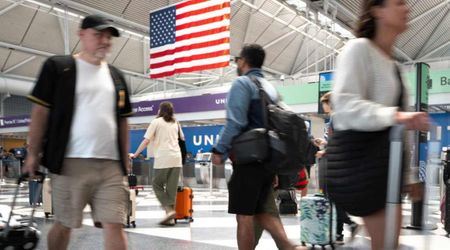Government Bodies Discouraging Short-Term Rentals; What Will Be the Impact?

Rent prices for accommodations across the United States are rising at an alarming rate and one of the main reasons behind this is the high demand for short-term rentals like Airbnb and VRBO. Tourists who visit the United States from across the globe tend to pick short-term rentals. Thus, residents see it as a good source of additional income. When they rent to someone on a longer term, they then expect similar rent prices, which is not feasible. Hence government bodies are coming up with policies that discourage short-term rentals.

Local bodies see short-term rentals as the primary cause behind rising rental rates. Hence, some government bodies have come up with policies that bar owners from putting their houses on Airbnb. One such local law in New York requires the house owner to be registered with the city and to be present in the property when guests are staying. Also, no more than two guests can be entertained. But the short-term rentals are not the sole reason for soaring housing rentals. In cities like New York, there are several restrictions on buildings in addition to geographical restrictions like sharing the boundaries with the ocean, which makes it difficult to build houses to meet the increasing demands. More incoming tourists also add to the demand, but it’s the lack of supply to meet the increased demand that is leading to high prices. As per the findings shared by Sophie Calder-Wang and Chirara Farronato in Havard Business Review, short-term rentals account only for 1% of the growth in rent over the decade.
The government bodies are taking strict action to ban short-term rental as they consider it to be the leading factor of rent hikes which deprives minority classes of affordable housing. However, as per the findings shared by Havard Business Review, most of the short-term rentals are located in central parts of the cities where educated people with high incomes live. Thus, minority sections are not impacted by short-term rentals.
Short-term rentals are not as bad as some local bodies think them to be. Short-term rentals help the tourism industry thrive as they provide more affordable options for foreign tourists as compared to hotels. Hotels are designed to host a specific number of guests and their prices vary, depending on the season and the demand. When there is a peak rush of tourists, many hotels might not be able to take the reservations or offer them at a rate suitable for the tourists. On the other hand, owners of short-term rentals often do not stay in those properties or they want to utilize the extra rooms they have, so they rent them out. They are not much inclined towards charging a lot and offer the accommodation at much cheaper rates.

Another thing to consider is that in many short-term rentals, the host tries to provide a personalized experience to the guests and allows them to be part of the local customs and cultural activities. The guests and the hosts may build a more enduring bond in such situations, and thus, contribute to a good brand image for the city or the place. Such tourists are more likely to return and also recommend the place to their friends and family, helping the city's tourism business. The tourists staying in short-term rentals often prefer to buy from the local community, thus, boosting the economic growth of the small business owners.























